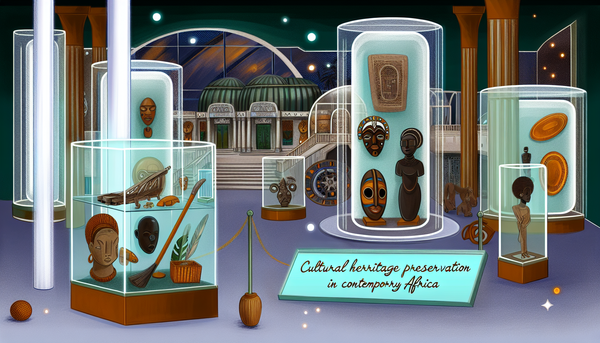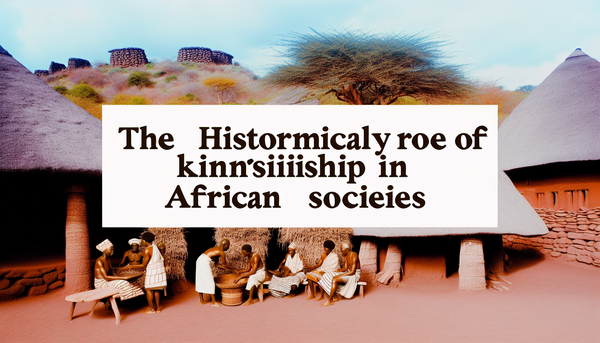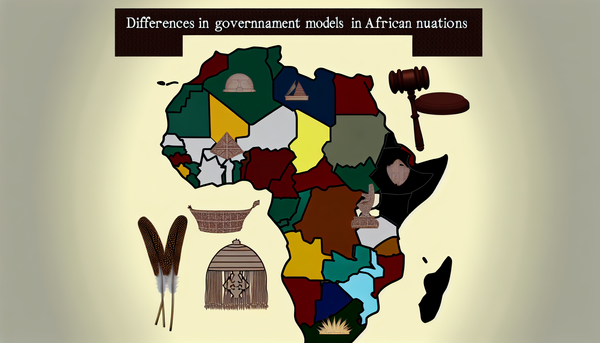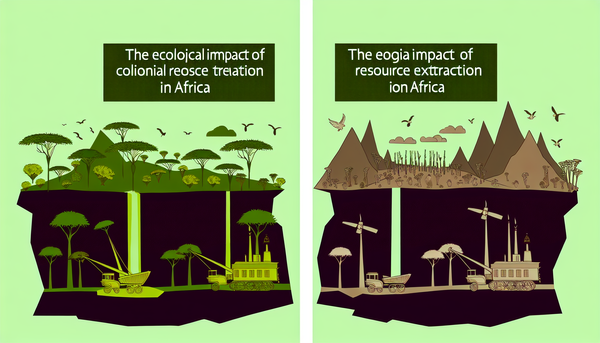The History of African Resistance Movements
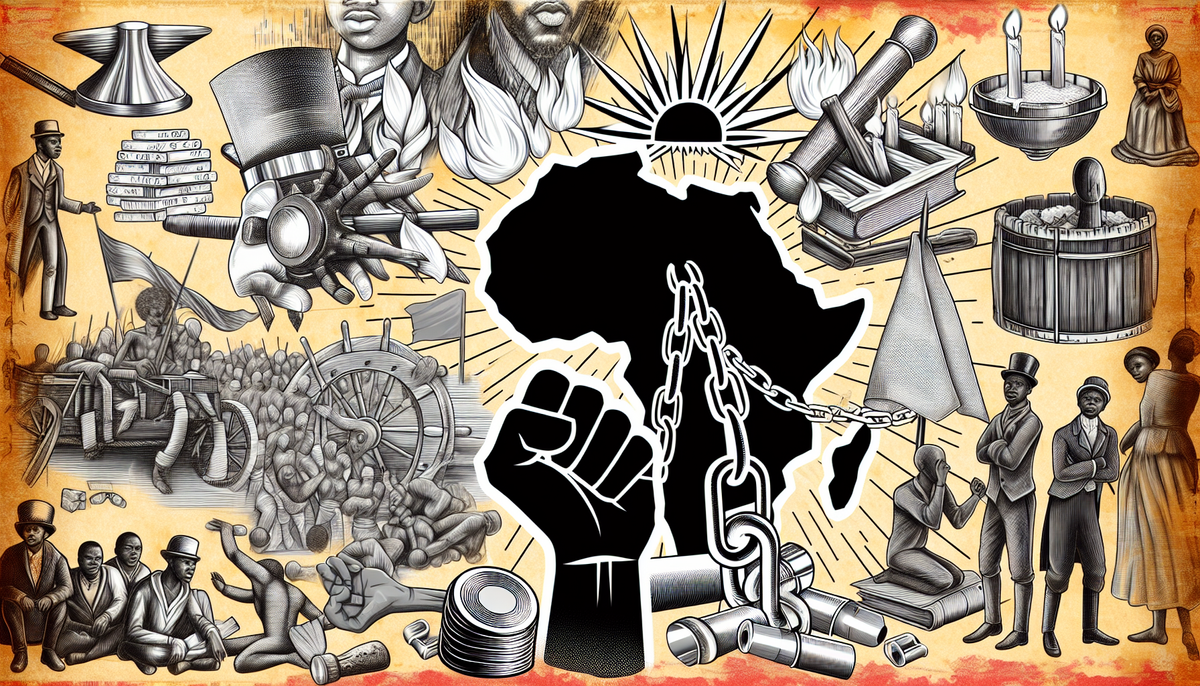
Colonial Era Revolts: The Early Foundations
During the colonial period in Africa, various indigenous populations began to resist foreign rule and exploitation. These early revolts laid the groundwork for future liberation movements across the continent. The arrival of European powers in the 19th century disrupted traditional societies, leading to widespread social, economic, and political upheaval.
One prominent example is the Maji Maji Rebellion in 1905, which occurred in present-day Tanzania against German colonial authorities. This uprising was sparked by oppressive taxation and forced labor policies that violated local customs and livelihoods. Similarly, the Aba Women's War of 1929 in Nigeria showcased the critical role women played in resistance against British colonial regulation, drawing attention to injustices faced by local communities.
These revolts were often characterized by a blend of armed resistance and strategic negotiation, as various groups sought to defend their autonomy and cultural identities. Though many were initially suppressed, these early movements inspired subsequent generations of activists and leaders. The collaborative spirit and courage demonstrated during this time were instrumental in shaping the collective consciousness that would propel later independence movements across Africa. Through these struggles, Africans began to articulate a vision for self-determination that resonated deeply throughout the continent.
Post-Independence Insurgencies: The Quest for Sovereign Identity
Following the wave of independence that swept across Africa in the mid-20th century, many newly liberated nations faced myriad challenges, leading to a rise in post-independence insurgencies. Despite gaining formal sovereignty, numerous countries struggled with political instability, ethnic divisions, and economic hardships. Discontent brewed among various groups who felt excluded from power and resources, prompting the emergence of armed movements seeking to address these grievances.
In countries like Angola, Mozambique, and Ethiopia, factions such as the MPLA and FRELIMO waged protracted struggles against both colonial legacies and oppressive regimes. These insurgencies were often fueled by a desire to reclaim an authentic national identity and promote social equity. The absence of inclusive governance only heightened tensions, leading to civil wars that further complicated the quest for unity.
Insurgent groups framed their struggles within broader contexts of anti-imperialism, invoking ideas of liberation and self-determination. As a result, these movements not only sought to combat oppressive regimes but also strived to redefine national identities amidst the remnants of colonial influence. The impacts of these conflicts remain evident today, as they have significantly shaped political landscapes and collective identities across the continent, continuing the dialogue about sovereignty and belonging in modern Africa.
Pan-African Movements: Unifying Across Borders
Pan-African movements emerged in response to the shared struggles and aspirations of people of African descent globally. Rooted in the late 19th and early 20th centuries, these initiatives sought to foster solidarity among Africans and their diasporic communities, emphasizing unity in the face of colonialism and racial oppression. Prominent figures, such as W.E.B. Du Bois and Marcus Garvey, championed the idea that liberation and self-determination could only be achieved through collective action and shared identity.
The 1950s and 1960s marked a significant period for Pan-Africanism, coinciding with the wave of independence movements across the continent. Conferences, such as the First Pan-African Congress in 1900 and the All-Africa Peoples' Conference in 1958, provided platforms for leaders to discuss common issues, promote political cooperation, and strategize against colonial powers. Noteworthy leaders, including Kwame Nkrumah and Julius Nyerere, emphasized the need for a united Africa, advocating for economic cooperation and political integration.
Despite the diverse political ideologies within the movement, Pan-Africanism profoundly influenced post-colonial governance, laying the groundwork for institutions like the African Union. Today, it continues to resonate as African nations work together to address contemporary challenges, promoting a vision of a unified and prosperous continent.
Women in Resistance: Key Figures and Contributions
Women have played a pivotal role in resistance movements across Africa, often at the forefront of struggles for liberation and social justice. Their contributions, while traditionally underreported, are crucial to understanding the broader narrative of resistance. Notable figures such as Ellen Johnson Sirleaf, the first female president of Liberia, exemplified women's leadership in post-conflict recovery, advocating for peace and reconciliation in a nation ravaged by civil war.
In Nigeria, the Aba Women’s War of 1929 showcased the formidable power of women as they protested against colonial taxation and economic exploitation. Their collective action marked a significant moment in the feminist movement, emphasizing the intersection of gender and colonial struggles. Similarly, in South Africa, women participated actively in the anti-apartheid movement, with organizations like the Black Sash and the Federation of South African Women mobilizing protests against discriminatory laws.
Women have also utilized cultural forms of resistance, using art, music, and literature to express dissent and preserve their identities. From poets to activists, their voices have enriched the resistance narrative, challenging patriarchal structures within both colonial and independence movements. Recognizing and amplifying the contributions of these women is essential to understanding the complexities of Africa's resistance history and fostering a more inclusive future.
Cultural Resistance: Preservation and Rebellion Through Art and Music
Cultural resistance in Africa has served as a vital means of preserving identity and fostering rebellion against oppression. Throughout colonial and post-colonial eras, artists and musicians have utilized their crafts to express dissent, tell untold stories, and reclaim cultural narratives. Through various forms of artistic expression, such as visual art, literature, dance, and music, cultural creators have provided platforms for resistance and unity.
In the realm of music, genres like Afrobeat, reggae, and griot traditions have articulated the struggles and aspirations of African communities. Artists like Fela Kuti in Nigeria used music as a form of political activism, critiquing corrupt regimes and advocating for social justice through powerful rhythms and lyrics. Similarly, the powerful songs of Miriam Makeba and Bob Marley resonated deeply, inspiring movements for change across the globe.
Visual artists have also played a crucial role in cultural resistance. Through paintings, sculptures, and installations, they have communicated themes of resilience, identity, and hope, challenging colonial portrayals and celebrating indigenous heritage. Festivals celebrating traditional arts and crafts further emphasize the significance of cultural preservation, allowing communities to connect with their history while simultaneously opposing external attempts to erase their identities. This vibrant tapestry of art and music remains a formidable tool for resistance, storytelling, and empowerment.
Modern-Day Activism: Trends and Impacts
In the 21st century, activism across Africa has evolved, driven by a new generation of leaders harnessing technology and social media to amplify their voices. With issues ranging from political corruption and social inequality to climate change and gender rights, modern-day activists employ innovative strategies to mobilize communities and foster change. Movements such as #FeesMustFall in South Africa and #EndSARS in Nigeria exemplify how young people are challenging systemic injustices and demanding accountability from their leaders.
The use of social media platforms like Twitter and Facebook has revolutionized activism, allowing for rapid dissemination of information and the organization of protests on an unprecedented scale. Grassroots organizations collaborate across borders, creating transnational networks that strengthen their causes and broaden their reach. These digital tools not only facilitate communication but also help raise global awareness about African issues, drawing international support and solidarity.
Additionally, modern activism increasingly emphasizes intersectionality, recognizing the interconnectedness of various social justice movements. Campaigns addressing women's rights, LGBTQ+ rights, and environmental preservation reflect a holistic approach to activism that seeks to uplift marginalized voices.
Ultimately, modern-day activism is reshaping Africa's socio-political landscape, fostering a culture of engagement and empowerment that challenges old norms and envisions a brighter, more equitable future.
Economic Resistance Strategies: Boycotts and Self-Sufficiency
Economic resistance has emerged as a powerful tool for communities and nations seeking to assert their autonomy and challenge oppressive systems. In Africa, strategies such as boycotts and self-sufficiency have played a critical role in undermining colonial and neo-colonial economic structures. Historical examples include the successful boycotts during the anti-apartheid movement in South Africa, where citizens and international allies refused to engage with businesses that supported the apartheid regime. These efforts strived to isolate the regime economically, forcing a reconsideration of its policies.
Self-sufficiency is another vital aspect of economic resistance. Many communities have turned to local production and traditional crafts to reclaim control over their economies. Initiatives promoting local agriculture, handicrafts, and cooperative enterprises enable communities to reduce dependency on imported goods and empower local economies. This approach not only fosters economic resilience but also reinforces cultural identity, allowing communities to celebrate their heritage while resisting external pressures.
Moreover, modern examples of economic resistance can be seen in movements advocating for fair trade and ethical consumption, encouraging consumers to choose products that support local industries. By integrating economic strategies into their resistance efforts, these movements challenge existing power dynamics and work towards a more equitable and self-sustaining future. Ultimately, economic resistance remains a fundamental component of the broader struggle for justice and liberation in Africa.
